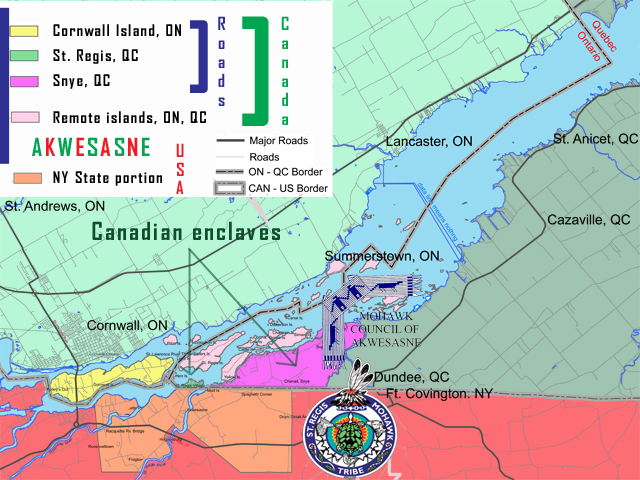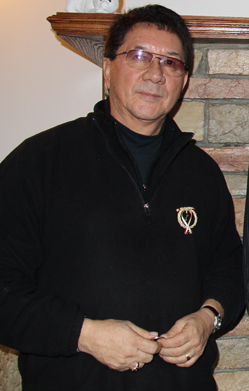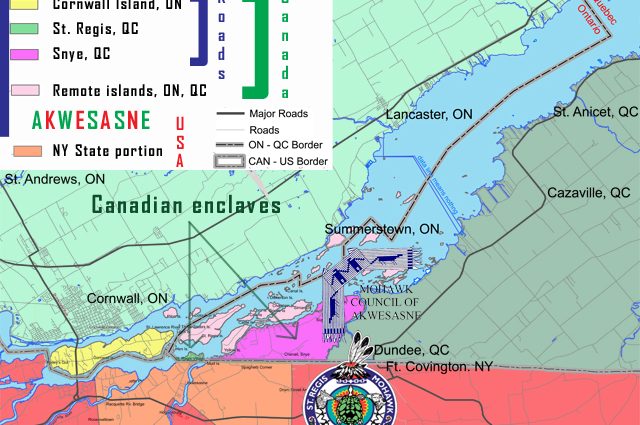TERRITORY OF AKWESASNE – The results of a cross-border smuggling study conducted and released by the MacDonald Laurier Institute this week is misleading and unfortunately can not be considered objective or accurate due to its lack of fair and thorough research.
The Border Integrity, Illicit Tobacco, and Canada’s Security 40-page study takes a broad look at the issue of smuggling in the “401 corridor” region (Montreal, Quebec to Kingston, Ontario).


“While components of this study are accurate, the overall position seems to be pushing an agenda using all too familiar scare tactics,” said MCA Grand Chief Mike Kanentakeron Mitchell. “For example, there is no evidence that tobacco smuggling in this area contributes in any form to terrorism or mafia crime. What we are asking now is: Who asked for this study? Who paid for this study? Based on the final report, it seems quite apparent that there is an agenda being pushed.”
The MLI study was completed without any contact with Akwesasne leadership until plans were underway to release it. Researchers failed to meet with Akwesasne community members or any officials who have knowledge of the historical aspect of the tobacco trade, the political relationship between First Nations and Canada, or Akwesasne’s own police statistics. Researchers relied on Internet articles published by Canadian media, but did not use any Akwesasne media sources or publications as reference. All of this contributes to a one-sided report that is meant to scare the federal government into taking extreme measures to fight a non-extreme political and economic issue.
The MLI hosted a conference on March 26, 2013 to present the outcome of the study and MCA leaders were invited to attend. This communication was the first contact made by MLI regarding the study.
Despite many inaccuracies and poor research found in the report, Akwesasne leaders remain hopeful that Canadian officials will sit down with them to discuss solutions to the political and economic issues of the tobacco trade.
“What we have seen thus far from the federal government doesn’t really resemble any degree of support for resolving the problem, but rather a harsh execution of law,” said Grand Chief Mitchell. “More manpower, harsher sentencing, more equipment dollars spent…we have Ontario and Quebec at the table to explore alternative economic opportunities and to examine the option of legalizing tobacco manufacturing and legitimizing any other trade. We are waiting for the federal government to join us. If opportunities were provided for our youth in terms of promising careers in their home of Akwesasne, and if regulations were established to provide an alternative route for those in the tobacco business, we could see this issue move into a promising direction.”
One positive aspect of the report is the author’s suggestion that any solution will require all effected parties at the table, including First Nations leaders. This is precisely what Akwesasne leadership has been asking for since the 1990s.


Border guards are going to be replaced by a lot of machines that will do the work and that way border guards will not be paid to look the other way. Thank God that something has to be done now and not later. There are also drones in the skies and they too are watching and they will kill anybody who does anything illegal.
Robo cop?